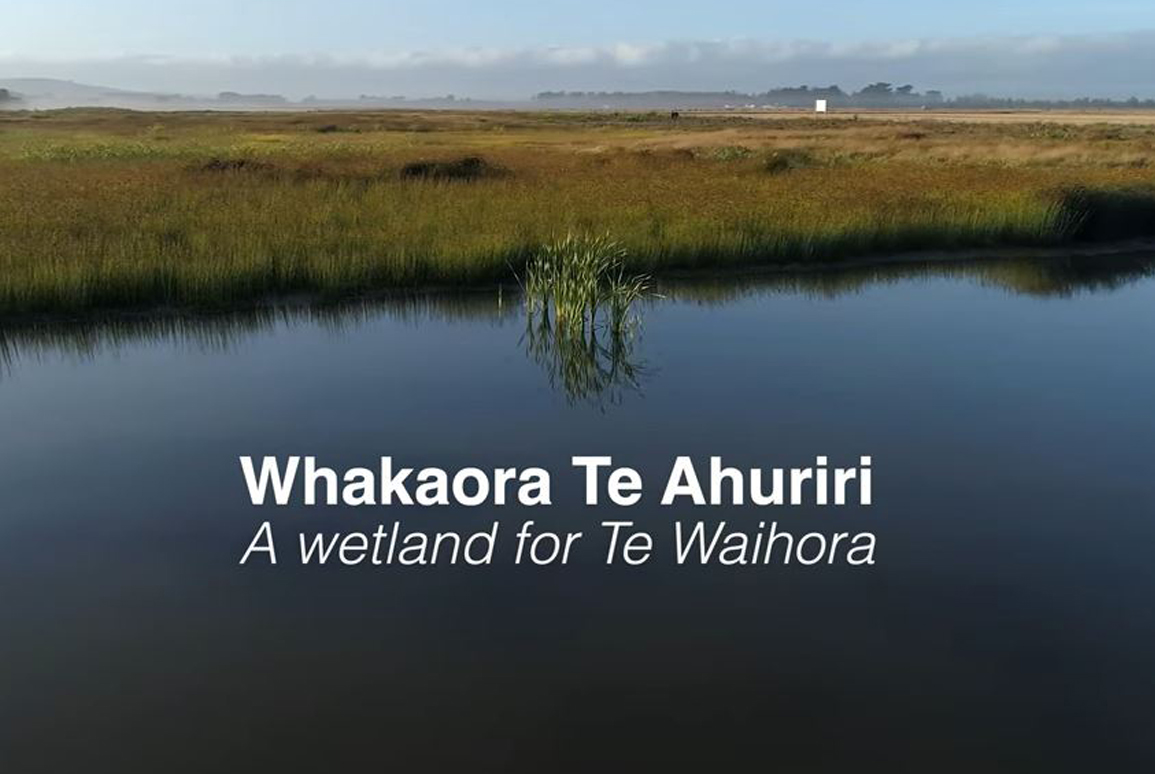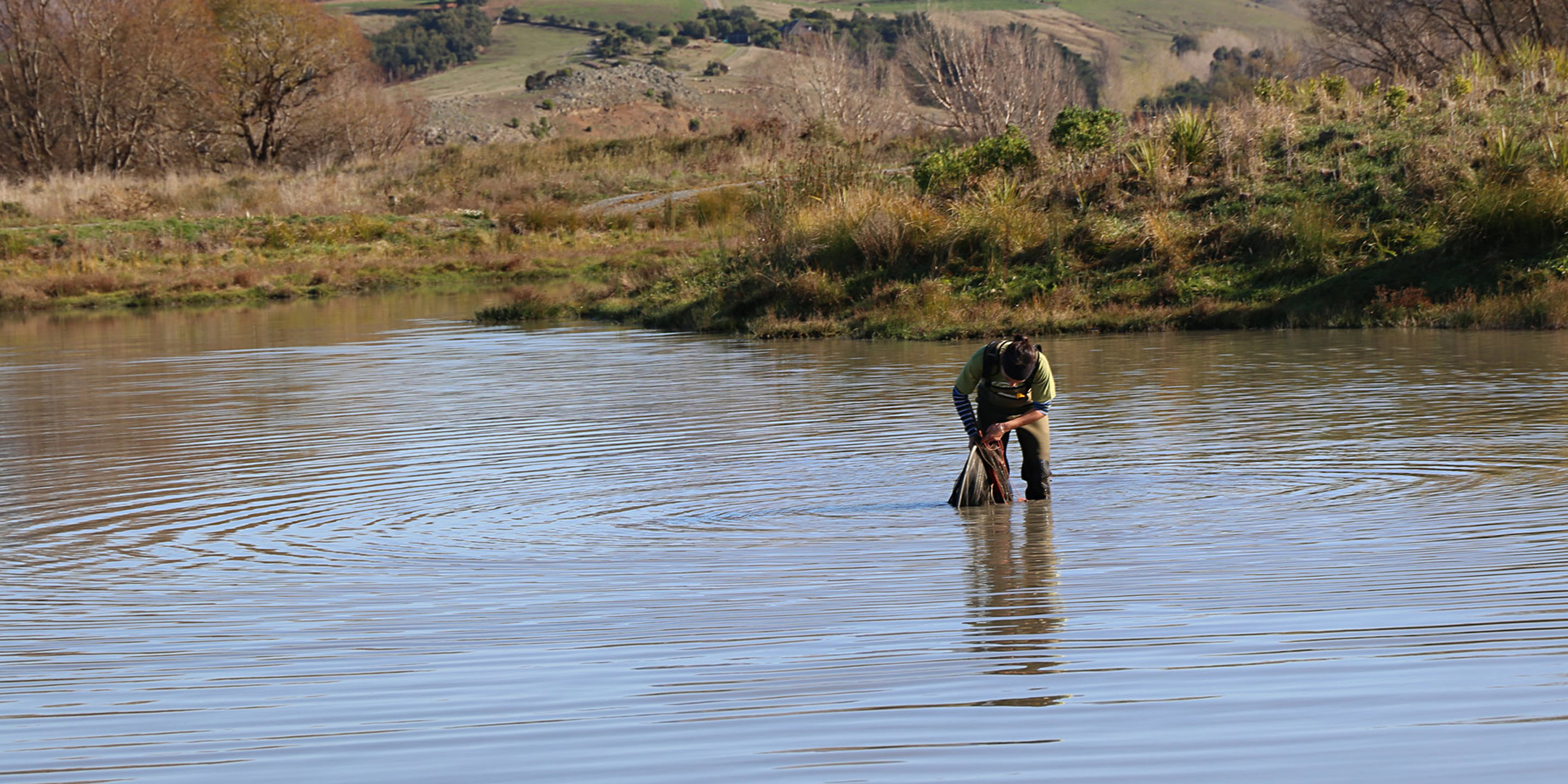Wetland documentary premieres at INTECOL
13 October 2021
Wetland documentary premieres at INTECOL
Whakaora Te Ahuriri is an example of traditional knowledge and innovative science coming together; of a culturally-led project, of collaboration and consensus, and of a constructed wetland at landscape scale.
Whakaora Te Ahuriri – A Wetland for Te Waihora has been shown for the first time at the International Wetlands Conference (Intecol).
The documentary, produced by Environment Canterbury, celebrates the creation of a constructed wetland in a culturally significant and internationally renowned part of Aotearoa New Zealand.
Environment Canterbury Councillor, Craig Pauling (Ngāi Te Ruahikihiki) narrates the documentary; which also features ecologist Dr Tanya Blakely, and Kaiwhiri Te Hihiri / Strategic Advisor, Mapihi Martin-Paul (Ngāi Te Ruahikihiki, Ngāti Pikiao).
Mapihi worked closely with local rūnanga members throughout the design and construction phase of Ahuriri, and currently undertakes Cultural Health Assessments that use the State of the Takiwā and Cultural Health Index models. She says, “It’s been really good to be involved in the project from its inception, and see it reach its endpoint. I’ve seen quite a dramatic change in the environment for the positive.”
Dr Tim Davie, Director of Science for Environment Canterbury notes that the on-going measuring of both cultural and scientific data, and presenting those perspectives side-by-side, is one of the highlights of the project.
“I think the most exciting part is actually the partnership with rūnanga, with mana whenua,” he says. “The way that it’s being monitored, the mātauranga that’s being used to monitor it, I think that’s just a really exciting example for future projects of how we can work together for really effective change.”
Throughout the Whakaora Te Ahuriri project, Mātauranga Māori has been identified as being critical to informing both the design and reconstruction of the traditional wetland, as well as being a tool to monitor progress and performance of the wetland.
Freshwater ecologists work alongside iwi to gather data that provide insight on the current health of the water system from an ecological perspective.
“We have worked together for the last few years… coming out and assisting on the assessments, being on-site with the rūnanga,” says Tanya.
“[Ahuriri is] a great opportunity to show where traditional knowledge and scientific knowledge can work together and achieve a common goal, as well as enhancing the environment and cultural ecological values.”
Find out more
Finding ways to measure mauri: State of the Takiwā
For further information please contact Dr. Tanya Blakely or Mapihi Martin-Paul



